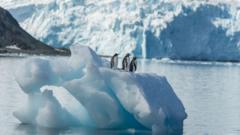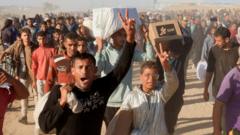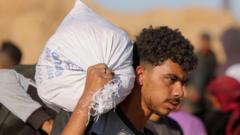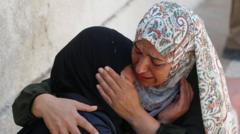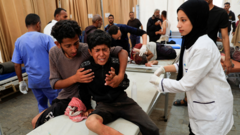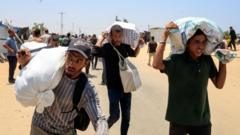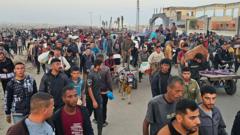**A BBC Arabic team was held at gunpoint by Israeli forces while attempting to film near the Golan Heights, raising concerns over press freedom in conflict zones.**
**Israeli Forces Detain BBC Crew at Gunpoint in Southern Syria**
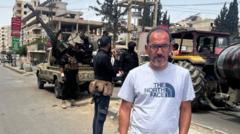
**Israeli Forces Detain BBC Crew at Gunpoint in Southern Syria**
**A BBC Arabic team encountered a tense standoff with Israeli soldiers during a reporting mission in southern Syria.**
On May 9th, a BBC Arabic team comprising seven members, including myself, set out from Damascus to report on the situation in southern Syria, specifically near the Israeli-occupied Golan Heights. Our mission aimed to document the developments in the buffer zones that have been under Israeli control since December, when the Israeli Prime Minister announced longstanding ambitions to maintain military presence there indefinitely.
As we approached the area of al-Rafeed, near a United Nations observation post, we were informed by a UN official that the Israeli side had acknowledged our presence as a BBC crew. We moved closer to Quneitra, a city long positioned in the contentious buffer zone defined by a 1974 disengagement agreement after the Six-Day War.
While setting up for our filming, we noticed Israeli Merkava tanks stationed nearby and were being observed by Israeli soldiers. My colleague promptly displayed our BBC IDs to signal our intentions. However, within minutes, the scene shifted dramatically as a white vehicle drove up, and armed soldiers emerged, surrounding us and aiming their rifles directly at us.
Despite my attempts to clarify our identity as a media team, tensions escalated quickly, leading to our equipment being confiscated, and we were forcibly escorted into Quneitra. Upon arrival, the soldiers began scrutinizing our footage while another soldier continued to aim his weapon at me. After an agonizing wait of over two hours, I was compelled to speak with an unknown individual who questioned our filming motives, despite my explanation of our journalistic mission.
Soon after, I was separated from my team and led into a shabby room at the crossing point, where I was subjected to a humiliating search and faced further questioning. Despite my protests, the severity of their demands left me with little choice. The officers assured me that my team would soon be released following their own interrogations. However, I witnessed my colleagues being treated even more harshly and secured with blindfolds and zip ties.
Following significant interrogation, during which personal data and photographs were scrutinized, they threatened us with dire consequences if we attempted any future reporting in the vicinity. Eventually, after hours of captivity, we were released but left lost in unfamiliar territory without communication devices or guidance. Only with help from locals could we reconnect with the highway and find our way back to Damascus.
This alarming incident underscores the complexities journalists face in conflict zones and the pressing need for press protections, especially in areas where military and civilian boundaries often intertwine.




